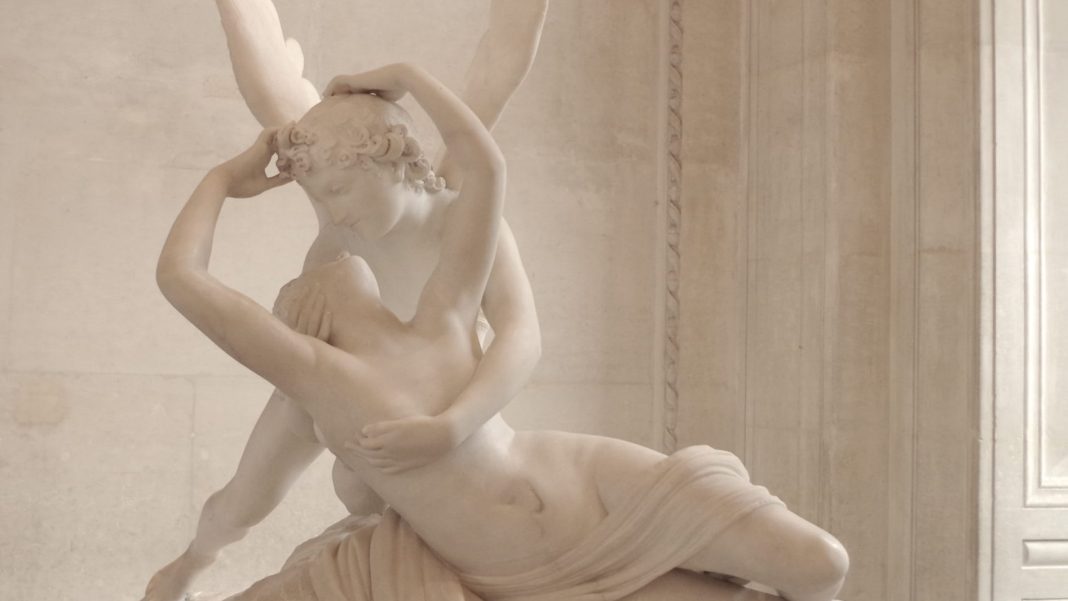I’d been warned about the dating scene at Oxford. There’s something about self-entitlement that sharpens the sting of hook-up culture. One too many walks of shame through the city centre as students flocked to their 9ams taught me all too clearly that academic and emotional intelligence do not always develop in equal measures. And so, earlier this year, I made a pact with a friend that we would both download Hinge. Given my track record of Kanye-defenders, love-bombers, and emotionally under-developed mummy’s boys, I figured that I had nothing to lose.
The notion of romance, naively supported throughout childhood through the Hallmark staples of love letters, roses, and the meet-cute, has, inevitably, evolved in the digital age. The whole process of dating has become ‘gamified’, and romantic decisions are compressed into the tap of a button – a bleak arcade machine where the prize is usually disappointment. If you’re looking for the reasons behind the dwindling marriage rates, I have an entire album of screenshots that make a strong case. Somewhere between the third “I’ll fall for you if… you trip me” prompt, and the eighth awkward group photo (it’s always the one you hope for the least), I came to accept the fact that I wasn’t going to find the one on Hinge.
The entire concept of online dating has long been regarded as dubious. Flattening yourself into the confines of a perfectly curated profile can all too easily verge into the risky territory of commodification, a marketing campaign from which a unique image of yourself can supposedly be extracted, bolstered by artificial insights into your personality to muster a mumble of self-expression. Within this hall of mirrors, you must display uniqueness filtered through the limits of the socially digestible. This performance art eschews intimacy and reduces romance to a highlight reel of superficial ranking, a digital pageant show which incurs the same, age-old objectification, the same Faustian bargain with a built-in obsolescence clause. We are made to represent ourselves in some sort of perverse panopticon of romantic and sexual fantasy.
Everything about this is a humiliation ritual. The act of sending a like is enough to make you feel like Carrie Bradshaw showing up at Big’s door. You have to cultivate a show of insouciance, an ironic detachment: desperation is detrimental to the brand image. Even Vogue decreed that having a boyfriend is cringe now, actually. One wrong romantic step is figured as a catastrophic brand collapse, where partners are evaluated not as people, but as threats to your image. This focus on optics turns out to be just another symptom of the timeless idea of women as a product, something to be marketed and sold – capitalism loves to disguise itself as feminist analysis.
But it never felt that serious. Once I had abandoned the hope of actually making a meaningful connection, scrolling the app became a kind of entertainment, an opportunity to laugh with my friends over some of the more egregious profile choices. The bleak landscape of online dating, when viewed through this lens, was transformed into a carnivalesque display of what Oxford has to offer. That is, of course, until I began to more frequently experience that uncanny feeling of recognition as I pass people on Broad Street. Oxford is ultimately too small a place for the world of Hinge to be safely abstracted. The profiles of friends, exes, and BNOCs appearing on my feed has caused me to throw my phone across the room in shock more times than I can count. One more photo of someone in an academic gown is going to make me scream, not to mention the sheer number of people willing to label themselves ‘conservative’. But the real low point came when I received a pick-up line that was patently AI-generated. Clearly, communicating with girls their own age is beyond the skillset of the average Oxford student.
This is not to say that such a disheartening range of options is an Oxford-specific problem. When I went home over the vac, the only profiles that came up on my feed were the bartender at my village pub, and a boy I went to primary school with. Needless to say, this didn’t fill me with optimism. At some point, the curiosity wore off. Opening the app became admin and tapping through the profiles became a chore. The ethos of “it’s just around the corner” is an exhausting one, and lack of fulfilment breeds defeatism. The half-baked prompts and confusing red flags that had, at first, provided such ripe comedic material, now became a source of frustration. Increasingly, I found myself lost in analysis paralysis, weighing up which of my standards I could compromise on in the interests of the least bad option. I buried my instincts for self-preservation and followed the rules for dating proscribed by the universe (or rather, the Hinge CEO).
Hinge fails because it turns dating into a diagnostic test. Romance is too stubbornly particular to be generated by an algorithm, particularly one that, as a business model, benefits from relational failure. Dating apps impose an artificial structure, an illusion of control over something inherently mysterious, as if all romantic experience can be concentrated into the conveyor belt of homogenous profiles.
Hinge is marketed as the app “designed to be deleted”, but what it didn’t specify is that it would be out of frustration, rather than any kind of romantic fulfilment. All this is to say, there’s no way Zohran Mamdani met his wife on Hinge.


